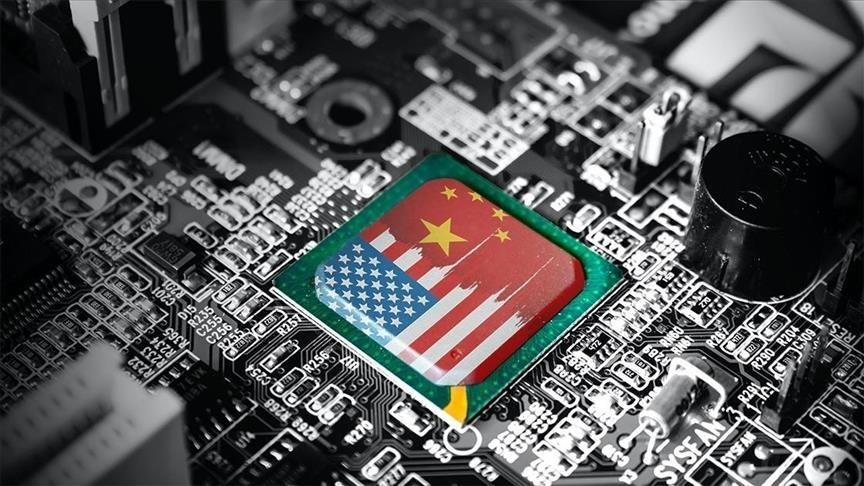Allegations of espionage, theft add fuel to the fire in US-China chip war
US Department of Justice charges 2 Chinese nationals with exporting Nvidia's AI chips to China, while Taiwan detains 3 people for alleged theft of trade secrets

ISTANBUL
The US–China chip dispute reignited with new tensions after the Department of Justice charged two Chinese nationals for “knowingly and willfully” shipping Nvidia H100 artificial intelligence (AI) chips to China, while Taiwan allegedly found three people stealing trade secrets.
The tech dispute between the two giants accelerated when the US sanctioned Chinese firm Huawei in 2019, triggering the start of the biggest chip feud in recent years.
Allegations of espionage and theft have been added to the piling number of mutual chip and raw material export bans between the US and China.
The US Department of Justice indicted Chuan Geng and Shiwei Yang for allegedly exporting Nvidia H100 chips from October 2022 to July 2025 without proper licenses.
Meanwhile, Taiwan detained three people for the alleged theft of tech trade secrets from the country’s chipmaker giant, Taiwan Semiconductor Manufacturing Company (TSMC). The names of the suspects were not disclosed.
Importance of Nvidia H100 chips
Nvidia, a US-based chip giant, produces AI chips that power large language models (LLMs) like GPT-4, handling neural language processing (NLP) and other tasks.
The Nvidia H100 plays a key role in the allegations of espionage.
Nvidia CEO Jensen Huang said the US and China are close in the race for AI chip dominance, but the US needs to implement energy policies to boost its emerging tech industries while warning against Huawei, which has begun its own AI chip development.
Huawei sent samples of its latest 910C chips, expected to rival Nvidia. Some tech firms have begun taking orders already.
US chipmakers dominate top 10 firms in global chip market
American chip manufacturers dominate the world, accounting for six of the top 10 in terms of market cap.
Nvidia is the leader in the field with a market value of $4.4 trillion, according to the companiesmarketcap.com website, followed by US-based Broadcom with $1.4 trillion, TSMC with $1.2 trillion, South Korea’s Samsung with $335 billion, and American chipmaker AMD with $278 billion.
Meanwhile, Netherlands-based ASML ranks sixth in the top 10, followed by Texas Instruments, US-based firms Qualcomm and Applied Materials, and the UK-based Arm Holdings.
The World Population Review’s “Semiconductor Manufacturing by Country 2025” report showed that Taiwan is at the top with production volume, while South Korea, Japan, the US, and China follow the small island country.
US depends on Chinese raw materials for chips
China supplies a large portion of the raw materials used in chip and semiconductor manufacturing.
According to the Brussels-based Critical Raw Materials Alliance (CRMA), China supplies more than 80% of the gallium and 60% of the germanium used in chipmaking.
According to the sourceability.com website, the US imports approximately 95% of its gallium and 80% of its germanium from China.
In a bid to reduce foreign dependence, the US took a concrete step with the CHIPS and Science Act of 2022 to bring semiconductor production back to the country.
One of the firms that agreed to invest in the US chipmaking industry was TSMC.
The Taiwanese chip giant announced that it would invest over $100 billion to build multiple advanced facilities in Arizona—when completed, the project will be the largest foreign investment in US history.
Anadolu Agency website contains only a portion of the news stories offered to subscribers in the AA News Broadcasting System (HAS), and in summarized form. Please contact us for subscription options.







